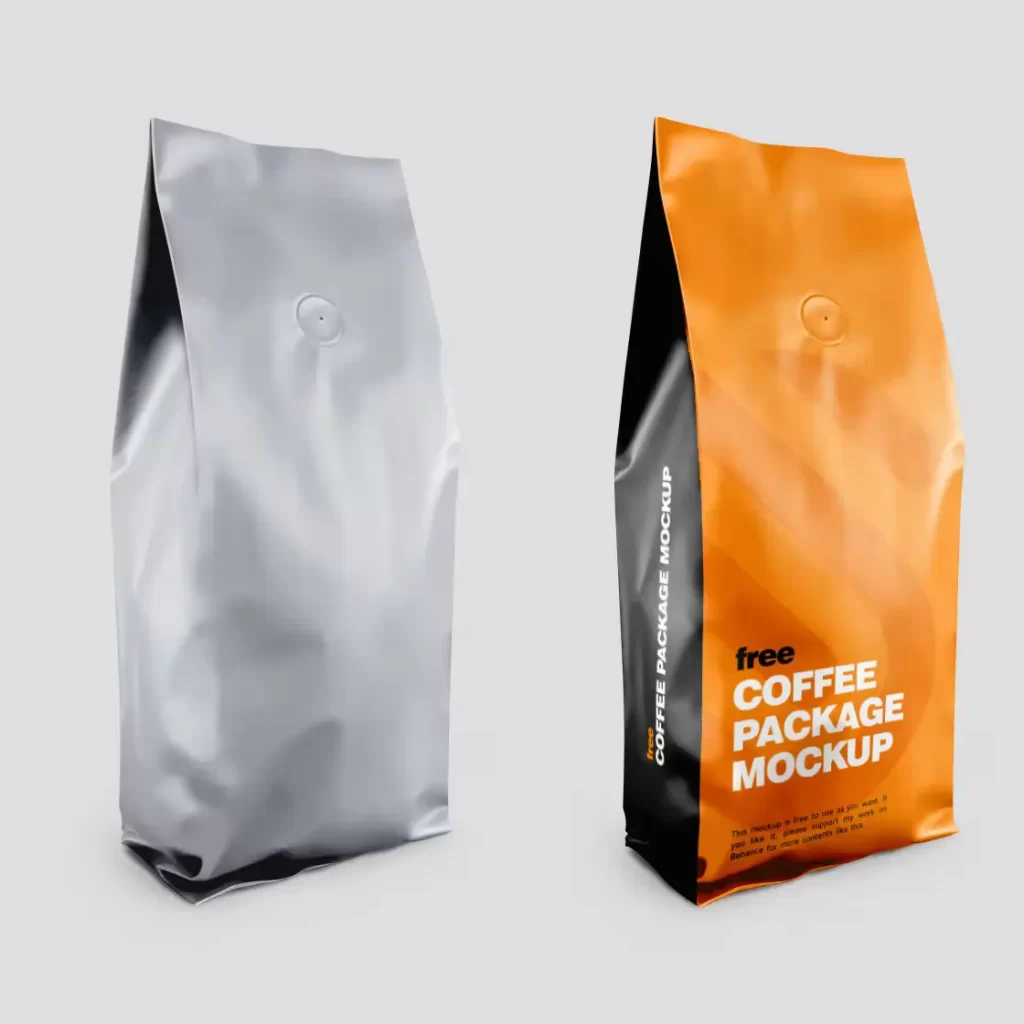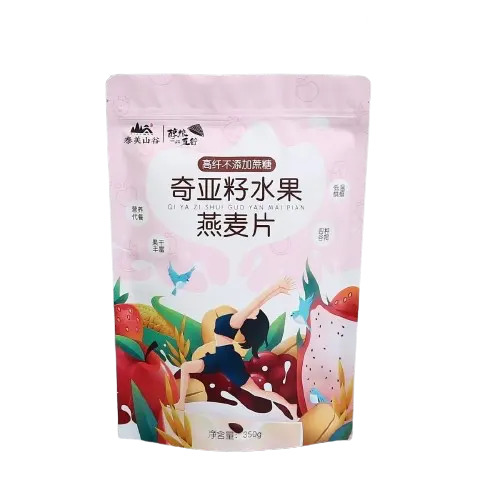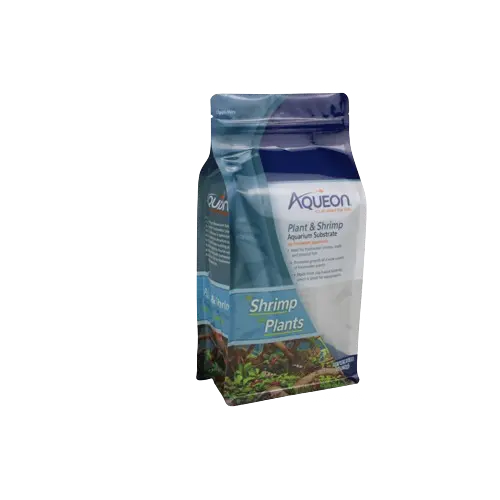WeChat:
+86-189 7322 3283
What’s app::
+86-13630093256
Content Menu
● What Are Aluminum Foil Packaging Bags?
● Key Advantages of Aluminum Foil Packaging Bags
>> Excellent Barrier Properties
>> Heat Resistance and Temperature Stability
>> Eco-Friendly and Sustainable
>> Versatility and Customization
● Applications of Aluminum Foil Packaging Bags
>> Pharmaceutical and Healthcare
>> Cosmetics and Personal Care
● How Aluminum Foil Packaging Bags Work
● Limitations and Considerations
● Comparison with Aluminized Packaging Bags
● Customization Options for Aluminum Foil Packaging Bags
● FAQ
>> 1. What types of products are best suited for aluminum foil packaging bags?
>> 2. Can aluminum foil packaging bags be resealed after opening?
>> 3. Are aluminum foil packaging bags environmentally friendly?
>> 4. How does aluminum foil packaging extend product shelf life?
>> 5. Can aluminum foil packaging bags be customized with printing and special features?
In today’s competitive market, packaging plays a crucial role in preserving product quality, extending shelf life, and attracting consumers. Aluminum foil packaging bags have emerged as a preferred choice across various industries due to their exceptional protective properties, versatility, and cost-effectiveness. This article explores why aluminum foil packaging bags are an excellent solution for your products, highlighting their advantages, applications, and customization options.

Aluminum foil packaging bags are composite bags that incorporate a layer of aluminum foil within their structure. This aluminum layer acts as a barrier against oxygen, moisture, light, and contaminants, which are common causes of product degradation. The bags are typically made by laminating aluminum foil with other materials such as polyethylene or polyester to enhance strength, sealability, and flexibility. These bags are widely used in food, pharmaceutical, cosmetic, and industrial packaging sectors.
One of the most significant benefits of aluminum foil packaging bags is their outstanding barrier capabilities. Aluminum foil blocks oxygen, moisture, light, and odors effectively, preventing contamination and spoilage of the contents. This barrier helps maintain the freshness, flavor, and nutritional value of food products and ensures the efficacy and safety of pharmaceuticals. The impermeability to gases and moisture extends the shelf life of perishable goods significantly.
Aluminum foil can withstand a wide range of temperatures, making these bags suitable for packaging products that require heat treatment or refrigeration. They can endure high temperatures up to 125 degrees Celsius without losing shape or barrier properties, making them ideal for cooking, sterilization, and frozen storage applications.
Despite their robust protective features, aluminum foil packaging bags are lightweight, which reduces transportation costs and makes handling easier. Their flexibility allows them to be formed into various shapes and sizes, accommodating different product types and packaging requirements. This adaptability also helps in efficient storage and display.
Aluminum foil is abundant and relatively inexpensive compared to other packaging materials like glass or rigid plastics. The manufacturing process allows for mass production with minimal waste, and the lightweight nature reduces shipping expenses. These factors make aluminum foil packaging bags a cost-effective option for businesses of all sizes.
Aluminum foil is recyclable and has a lower carbon footprint compared to many plastic materials. Recycling aluminum requires significantly less energy than producing it from raw ore, contributing to environmental sustainability. Many manufacturers now emphasize recyclable and biodegradable packaging, and aluminum foil bags align well with these green initiatives.
Aluminum foil packaging bags can be customized with various finishes, colors, and printing options to enhance branding and product appeal. They can include features like resealable zippers, tamper-evident seals, and vacuum packaging compatibility. This versatility allows businesses to tailor packaging to specific product needs and consumer preferences.

Aluminum foil bags are extensively used for packaging coffee, tea, spices, powdered products, pet food, snacks, ready-to-eat meals, frozen foods, and dried goods. Their barrier properties protect food from moisture, oxygen, and light, preserving taste and freshness. Resealable options add convenience for consumers.
In pharmaceuticals, aluminum foil packaging ensures sterility and protects sensitive drugs from moisture, oxygen, and light-induced degradation. It supports tamper-evident features and anti-counterfeiting measures, enhancing product security and authenticity.
Cosmetic products benefit from aluminum foil bags as they prevent contamination and maintain product integrity. The packaging can be customized with attractive prints and finishes to appeal to consumers.
Aluminum foil bags are used to package sensitive electronic components and industrial materials that require protection from moisture, dust, and static.
Aluminum foil acts as a physical barrier due to its dense metal layer. When laminated between plastic films, it forms a composite structure that combines flexibility with protection. The plastic layers provide heat sealability and mechanical strength, while the aluminum layer blocks external elements. This multi-layer construction ensures the bag is airtight, waterproof, and resistant to tearing.
While aluminum foil packaging bags have many advantages, there are some limitations to consider:
– Brittleness: Aluminum foil can be brittle and prone to cracking if bent excessively. Proper lamination with flexible films helps mitigate this issue.
– Acid Resistance: Aluminum foil has poor resistance to acidic substances, so acidic products often require an inner sealing layer to prevent foil corrosion.
– Non-Heat Sealable Alone: Aluminum foil cannot be heat sealed by itself and must be combined with heat-sealable layers.
Understanding these factors helps in selecting the right aluminum foil bag design for your product.
Aluminum foil bags differ from aluminized packaging bags, which have a thin aluminum coating on plastic film rather than pure aluminum foil. Aluminum foil bags offer superior moisture resistance, oxidation resistance, light blocking, and tear resistance compared to aluminized bags, making them more suitable for products with high storage requirements.
| Feature | Aluminum Foil Bags | Aluminized Packaging Bags |
| Material | Pure aluminum foil | Plastic film with thin aluminum coating |
| Barrier Properties | Excellent moisture, oxygen, light barrier | Moderate barrier properties |
| Tear Resistance | High | Lower |
| Heat Resistance | High | Moderate |
| Cost | Higher than aluminized bags | Lower |
| Application Suitability | High-end food, pharmaceuticals | Snacks, low sensitivity products |
– Printing: High-quality printing for branding, nutritional info, and regulatory compliance.
– Seal Types: Resealable zippers, heat seals, tamper-evident seals.
– Shapes and Sizes: Flat pouches, stand-up pouches, gusseted bags.
– Additional Features: Vacuum packaging compatibility, degassing valves for coffee bags.
Aluminum foil packaging bags offer an unbeatable combination of protection, versatility, and cost-effectiveness, making them an excellent choice for preserving and showcasing your products. Their superior barrier properties safeguard against moisture, oxygen, light, and contaminants, extending shelf life and maintaining quality. Lightweight and customizable, they cater to diverse industries from food and pharmaceuticals to cosmetics and electronics. By choosing aluminum foil packaging bags, you invest in a sustainable, reliable, and attractive packaging solution that enhances your product’s market appeal and consumer trust.
Ready to elevate your product packaging with aluminum foil bags? Contact us today to explore customized solutions tailored to your needs and ensure your products stand out on the shelves while staying fresh and secure.

Aluminum foil packaging bags are ideal for food items like coffee, tea, snacks, frozen foods, and pharmaceuticals that require protection from moisture, oxygen, and light to maintain freshness and efficacy.
Yes, many aluminum foil bags come with resealable zippers or heat-sealable options, allowing consumers to maintain product freshness after opening.
Yes, aluminum foil is recyclable and has a lower carbon footprint compared to many plastics. Using aluminum foil bags supports sustainability efforts by reducing waste and energy consumption.
By acting as a barrier to oxygen, moisture, and light, aluminum foil packaging prevents spoilage and contamination, thereby significantly extending the shelf life of perishable goods.
Absolutely. Aluminum foil bags can be printed with branding, product information, and safety seals. They can also include features like vacuum compatibility, degassing valves, and tamper-evident seals.
Hot Tags: Aluminum Foil Packaging Bag, Foil Pouch Bags, Heat Seal Bags, Resealable Foil Bags, Custom Foil Packaging, Stand Up Foil Pouches, Food Grade Foil Bags, Mylar Bags, Vacuum Sealed Foil Bags, Moisture Proof Packaging, manufacturers, Customized, custom, suppliers, buy, cheap, Quality, Advanced, Durable, in stock, free sample, made in China, price, quotation